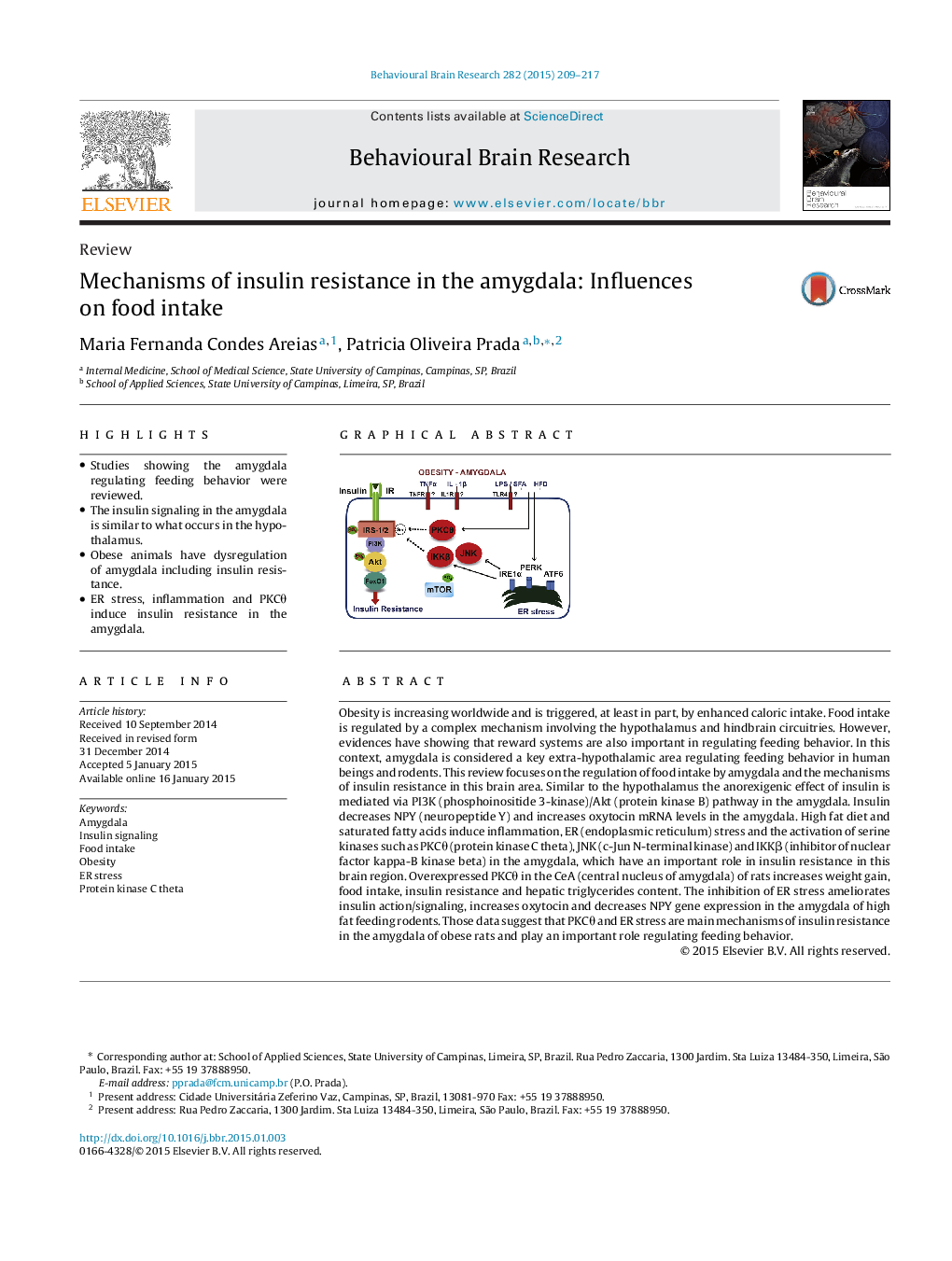| کد مقاله | کد نشریه | سال انتشار | مقاله انگلیسی | نسخه تمام متن |
|---|---|---|---|---|
| 6257245 | 1612950 | 2015 | 9 صفحه PDF | دانلود رایگان |
- Studies showing the amygdala regulating feeding behavior were reviewed.
- The insulin signaling in the amygdala is similar to what occurs in the hypothalamus.
- Obese animals have dysregulation of amygdala including insulin resistance.
- ER stress, inflammation and PKCθ induce insulin resistance in the amygdala.
Obesity is increasing worldwide and is triggered, at least in part, by enhanced caloric intake. Food intake is regulated by a complex mechanism involving the hypothalamus and hindbrain circuitries. However, evidences have showing that reward systems are also important in regulating feeding behavior. In this context, amygdala is considered a key extra-hypothalamic area regulating feeding behavior in human beings and rodents. This review focuses on the regulation of food intake by amygdala and the mechanisms of insulin resistance in this brain area. Similar to the hypothalamus the anorexigenic effect of insulin is mediated via PI3K (phosphoinositide 3-kinase)/Akt (protein kinase B) pathway in the amygdala. Insulin decreases NPY (neuropeptide Y) and increases oxytocin mRNA levels in the amygdala. High fat diet and saturated fatty acids induce inflammation, ER (endoplasmic reticulum) stress and the activation of serine kinases such as PKCθ (protein kinase C theta), JNK (c-Jun N-terminal kinase) and IKKβ (inhibitor of nuclear factor kappa-B kinase beta) in the amygdala, which have an important role in insulin resistance in this brain region. Overexpressed PKCθ in the CeA (central nucleus of amygdala) of rats increases weight gain, food intake, insulin resistance and hepatic triglycerides content. The inhibition of ER stress ameliorates insulin action/signaling, increases oxytocin and decreases NPY gene expression in the amygdala of high fat feeding rodents. Those data suggest that PKCθ and ER stress are main mechanisms of insulin resistance in the amygdala of obese rats and play an important role regulating feeding behavior.
157
Journal: Behavioural Brain Research - Volume 282, 1 April 2015, Pages 209-217
